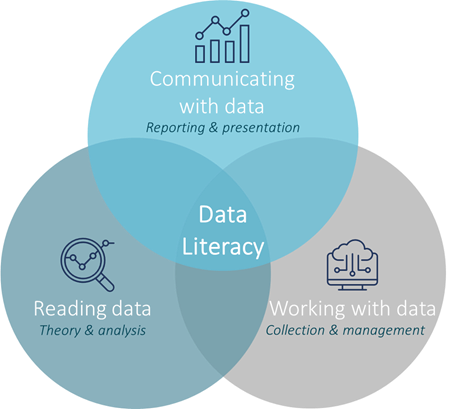Data is the foundation of information used by health professionals for evidence-based decision-making. Hence, it is necessary to understand data and communicate it effectively as information. The ability to read data, work with it, and communicate about it by putting it in the right context is known as data literacy.

Data literacy is a key skill needed in the 21st century, it focuses on the competencies involved in working with data, including but not limited to the following data-related capabilities:
- Data collection and description - how to collect data and create metadata (i.e. information/description about data).
- Data management - how to structure, store, preserve, integrate and share raw data.
- Data analysis - how to transform raw data into usable information and/or knowledge.
- Data visualisation - how to present analyses and insights derived from data graphically.
- Evidence-based decision-making - how to ethically and effectively use data to inform policy-making and decisions.
There is a sheer volume of health data available from multiple sources such as electronic medical records, mass immunisation health data, and data from health surveys, amongst others. These data require proper management and analysis to become useful information (Law et al, 2022). Therefore, it is important for health professionals to be equipped with data literacy skills so that they can interpret statistical results and make informed decisions that will enhance the services provided in the health industry.
Are there any of the data literacy competencies mentioned above, you would like to improve on?
References: